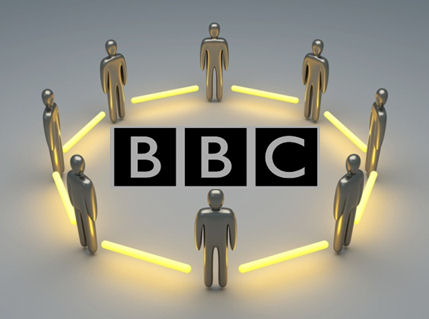As we look on with amazement at the implosion of the upper management of the BBC and the speed at which it happened, I’ve been reflecting on some of the dynamics and wonder what lessons can be learned about leadership and how organisations deal with important issues or problems.
As a young child I was often told that I asked too many questions and in senior school I was told to stop asking too many questions. It seemed to me that asking questions was the most natural thing as I really wanted and needed to know about so many things. And it’s not strange that now I find myself in a profession as a coach and a facilitator that is all about asking questions.
One of the things that I see as a core attribute of leadership is curiosity and what surprises me in a lot of my work with executives often is the absence of curiosity at best, and the criticism of curiosity at worst.
 The BBC & Incurious George
The BBC & Incurious George
At a recent appearance before the Parliamentary Culture, Media & Sports Select Committee, the then BBC Director General George Entwistle amazed many of the members during his evidence, with his lack of curiosity. Several days later, a subsequent interview with John Humphrys on the BBC Radio 4 programme ‘Today’, revealed once again his lack of knowledge about a subsequent Newsnight programme and his lack of awareness about the explosion of comments that day relating to the programme on Twitter. Even his failure to watch the Newsnight programme despite its contentious subject matter and finally his failure to read a Guardian article about the program made sure that George Entwistle truly earned the nickname’ Incurious George’, and that will surely live with him for years to come. Here he was, the new ‘top-man’ at the BBC and someone who had presumably been chosen for his unique leadership skills. But sadly, he is not alone.
I really find it difficult to believe how leaders who rise up in both medium and large organisations can become so isolated and distant from their employees and customers that their existence is only to react rather than pro-act to issuess and problems. When you look at the types of personalities who can derail businesses and organisations we are more likely to think of the megalomaniac or narcissistic types who bully and attack or run their teams or businesses into the ground. We rarely stop and think about those innocuous, grey corporate-types whose first reaction to an issue is often inaction. Yet this latter type is more common and more pervasive and is more difficult to detect because amongst other traits they don’t raise their head over the parapet; they remain invisible, and rarely take risks – they simply play the system.
Curiosity
So where do we go with this lack of curiosity in an organisation or in a leader or indeed in individuals? Curiosity helps us to gather more information and to make better decisions. Curiosity is about learning more about who you are, what you’re doing and your effect on other people. It’s about listening to others, asking questions and learning more about them. Curiosity helps us to see the bigger picture, to look at all sides of an argument from many perspectives and curiosity is often less about you and more about them. Curiosity is about engagement with colleagues, the people you lead and with the outside world. Curiosity is about being brave, about facing the reality of what you’ve discovered and the development of purposeful strategies to deal with them. Curiosity is a cycle and should demand action.
Action Learning
Some time ago I discovered a totally transformational process called Action Learning Sets first developed in the 1950s by Professor Reg Revans. Action Learning approaches to issue and problem resolution are, in my opinion, second to none. So often when we have a burning issue or a problem we discover that we’re surrounded by people with lots of advice, telling us what to do or even doing the job for us. Everyone seems to know better and a fine example of this is the plethora of books on leadership that runs into the thousands. But my approach is to take elements of successful leadership models that work for me – I believe that leadership is not only about curiosity but also about authenticity; being yourself, not who others think you should be. And for me, Action Learning Sets has proven to be an invaluable tool in my quest for curiosity and authenticity.
Next time……
My next blog will look at the concept of Action Learning Sets especially relating to creating business breakthrough and how truly transformational the process can be for individuals and organisations.
The BBC will weather the storm, as most organisations do, but it will be battered and bruised and hold a less revered position. It will also have learned some very serious lessons about the value of questions and the advantage of curiosity.
And, my answer to George Entwistle, if he had ever asked, would have been that curiosity never killed the cat.
Cognitions. The Power of Partnership.
© Cognitions 2012



